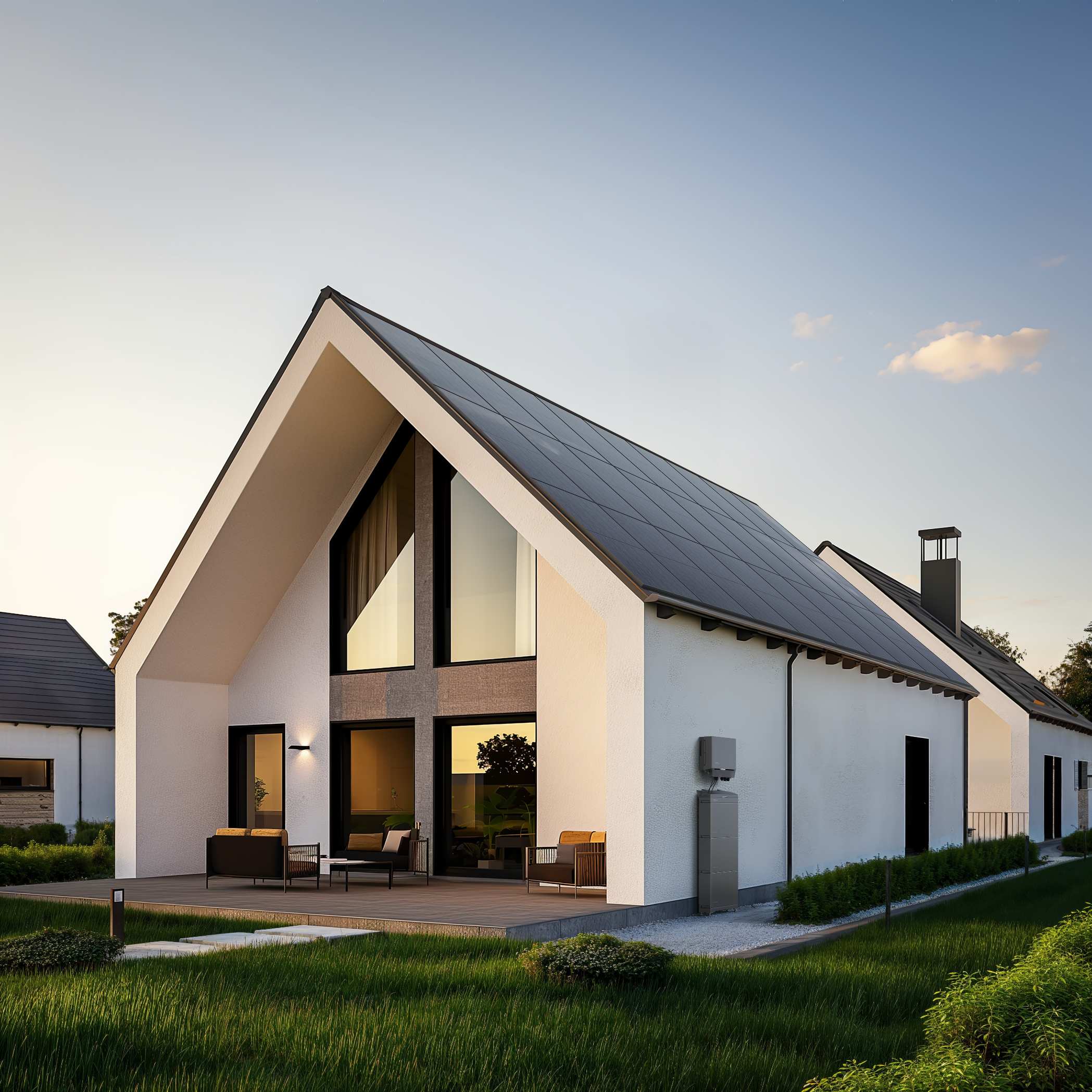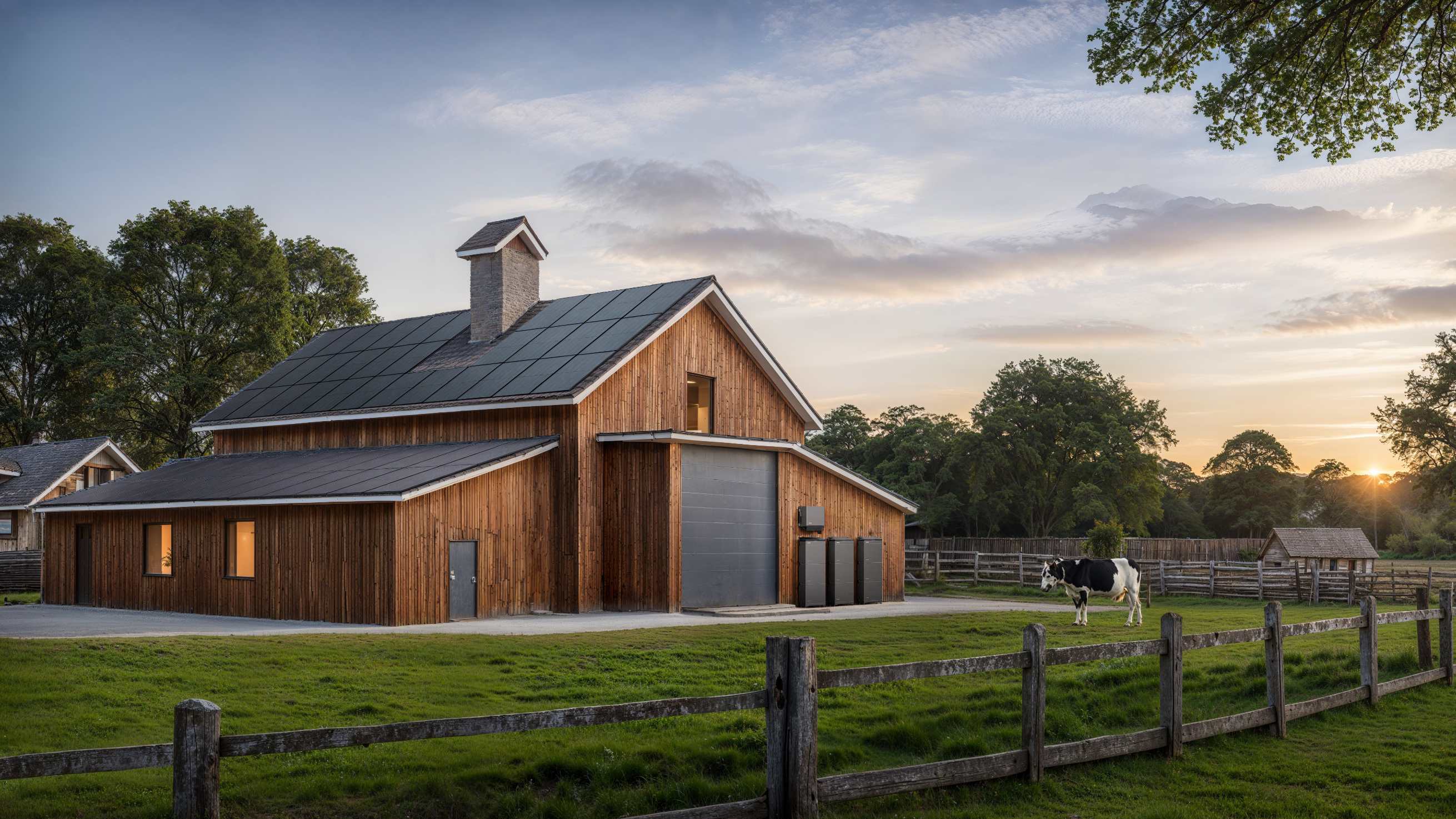Photovoltaic vs Solar Panels: What's The Difference?
While the terms photovoltaic (PV) and solar panels are often used interchangeably, they actually refer to different things. Photovoltaic models convert sunlight into electricity, whereas the term solar panels can refer to photovoltaic or thermal panels that generate heat.
Understanding the differences between these technologies is crucial for choosing the best solution for your energy needs.
Let’s explore how these terms differ, how they are similar, and the efficiencies, advantages and disadvantages of each to help you make an informed decision about which suits your needs best.
Understanding Photovoltaic Panels and Solar Panels
Almost everyone uses the terms photovoltaic and solar panels interchangeably. While both use energy from the sun, they may refer to different things. Technically speaking, photovoltaics, also called PVs for short, convert sunlight into electricity using semiconductor materials like silicon.
When electromagnetic radiation from the sun in the form of photons interacts with the semiconductors, it causes them to release electrons. Those electrons flow as one-way DC electricity. This process is known as the photovoltaic effect.
PVs use energy from the sun to create electricity, and we often call them solar panels because they’re easier for people to remember and are the types we use most commonly.
On the other hand, technically speaking, solar panels can refer to any panel that captures energy from the sun. This includes PV and thermal models. Thermal models collect sunlight to produce thermal energy instead of electricity, which can then be used to heat water or homes. We often refer to these as solar thermal or thermal panels to help distinguish them.
Here is an easy comparison of the differences between the two.
| Feature | Photovoltaic Panels | Solar (Thermal) Panels |
|---|---|---|
| Function | Converts solar energy to electricity | Converts solar energy to heat |
| Output | Electrical energy | Heat energy |
| Efficiency | Typically between 15-22% | Up to 70% |
| Technology | It uses semiconductors that intercept photons to release electrons | It uses liquid-filled tubes that heat water |
| Usage | Electricity for residential or commercial uses | Heating water and buildings for residential or commercial |
| Versatility | Multi-purpose for various appliances, tools, homes, RVs, EVs, etc. | Limited to heating |
| Energy Storage | It can be coupled with batteries or tied directly to the home and grid | Often uses hot water tanks to heat water and the home |
| Maintenance | Little to none | Requires some |
| Lifespan | 25 - 30 years | 20 - 30 years |
How Do Photovoltaic Panels and Solar Panels Differ in Efficiency?
Since the process they use to create electrical vs heat energy is entirely different, their efficiency is also different. Let’s take a look.
Efficiency of Photovoltaic Panels
PVs typically operate between 15 and 20% efficiency, although some of EcoFlow’s PV models can operate at an industry-best 23 to 25% efficiency. The conversion efficiency that results from capturing photons from the sun to create DC electricity, which then runs through a solar inverter to convert that DC into the AC electricity your home uses, is less efficient than systems that simply transfer heat from one location to another.
Still, with enough panels, you can easily generate enough power to run your home.
The True Efficiency of Solar Panels
These are much more efficient since they collect thermal (heat) energy directly from the sun to heat a liquid medium, usually glycol and water. That liquid transfers that thermal energy directly to water used for hot water and heating in the home.
Since it simply transfers thermal energy from one location to another, its efficiency is much greater, at around 70%. This means you need less space and fewer panels to create enough heat for your home than if you used PVs for heating.

The Advantages and Disadvantages of Photovoltaic vs Solar Panels
Like anything, both systems have advantages and disadvantages. Which factors are most important depends entirely on how you want to use them. Here are some of the most important advantages and disadvantages of each.
Advantages of Photovoltaic Panels
These can work all year, whether cold or warm, as long as the sun shines. They are also highly versatile. Since they produce electricity, they can power anything electrical, such as lights, appliances, EVs, heaters, and air conditioners. They also allow you to reduce or even eliminate your electricity bills.
When you combine them with a battery storage system, like the EcoFlow PowerOcean (Single-Phase), you can store the energy they produce and use it at night when your panels are not generating any power. With a large enough array and battery storage, you can gain energy independence and go off-grid altogether, no matter what size your home is or what your power needs are.
If you already have PVs and want to retrofit a battery system, the EcoFlow PowerOcean DC Fit makes it super easy. Simply add it to your system with minimal installation. There is no need to remove the current inverter or any other components.
Advantages of Solar Panels
These simply move thermal energy from the thermal collector tubes filled with liquid warmed by the sun to a copper coil that warms the hot water tank or other heat storage system. This simple movement of thermal energy from one location to another results in impressive efficiencies of around 70%.
Using a heat pump prevents the system from cooling the water tank on cold days. They can heat homes and water for household use without starting a heating system. Their high efficiency means you need fewer panels to heat the home than if you used electricity.
Disadvantages of Photovoltaic Panels
Since they convert photons from the sun into DC electricity, which must be converted into AC electricity for your home, they are less efficient than thermal, typically operating between 15 and 22%. They also only work during the day when the sun is shining, although using that battery storage system will allow you to overcome that disadvantage quickly.
Disadvantages of Solar Panels
Since they rely on thermal energy to warm the glycol solution, they operate poorly when cold outside or on cloudy days. In winter, in cold climates, they require antifreeze to keep them from freezing up, and they will be unable to generate thermal energy, limiting their usefulness. They are also less versatile because they do not produce electricity, only hot water and heating solutions.

Frequently Asked Questions
- Is Photovoltaic Better Than Solar?It depends. If you aim to produce power for electrical appliances, then yes. This is because solar thermal doesn’t produce electricity, but it can be better if you want to generate heat or hot water since it is more efficient; however, it works poorly in cold weather when you need it the most.
- What Are the Three Main Disadvantages to Solar Photovoltaic Energy?They only work when the sun is shining, so no power at night or during exceptionally bad weather. Thermal models are more efficient at producing heat energy. Finally, an initial up-front cost must be paid before you start seeing savings.
- What Is the Difference Between Solar Panels and Photovoltaic Arrays?The term solar panels can refer to photovoltaics that create electrical energy via the photovoltaic effect or to thermal models that create thermal energy to heat your home or water. However, people often use the term interchangeably, leading to confusion.
Final Thoughts
Both photovoltaic and thermal panels offer unique advantages depending on your needs. Photovoltaic systems are versatile, generating electricity for a wide range of applications, while thermal panels excel in heating water and buildings efficiently.
Which system is best depends entirely on what you want to use it for. If you only want heat, thermal might be the way to go. However, if you need electricity to power a wide range of appliances, electric cars, and anything else that uses electricity, then PVs are for you.
Pairing PVs with battery storage like the EcoFlow PowerOcean enhances energy independence, allowing you to store power so you can use it when the sun isn’t shining.




